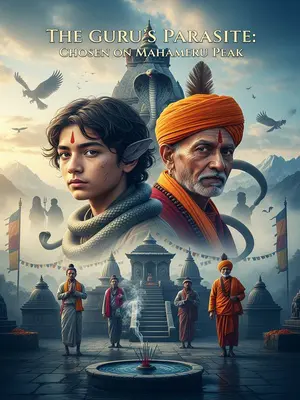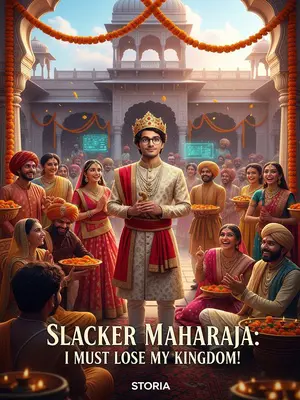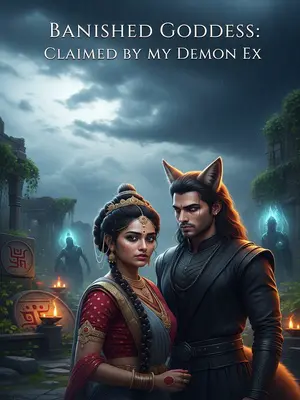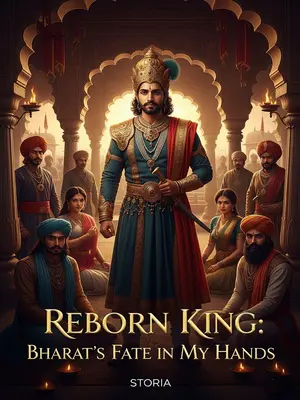Chapter 2: The Price of Ascension
I wandered the Amara Lok for five thousand years, believing that with my luck and strength, I could still make my mark in this vast world.
For five thousand years, I roamed from the snowy peaks of Kailashpuram to the lotus lakes of Chandrika Nagar, hoping fate would once again open her arms. I drank tea with wandering yogis, debated philosophy with ancient sadhus, but always, a restlessness gnawed at my insides. Staring at the star-filled sky, I would wonder: is this the world I had dreamt of?
But this time, I was wrong.
No amount of cleverness or power could buy me a home here. My old confidence now seemed like the pride of a village boy at a Delhi railway station—out of place and unremarkable.
It turns out, if you don't give up your freedom and join a sampradaya or family, you can't even obtain cultivation methods. What I prided myself on was laughable to the natives of the Amara Lok.
Here, the rules were different. Without a guru, without family, there were no techniques for you. “Freedom?” the locals would scoff. “What will you eat, bhai, when hunger comes?” Their words stung, as biting as a slap. My solitary pride was just a joke here, as out of place as a cowherd’s stick in a minister’s court.
The Amara Lok I struggled so hard to reach was only the starting point for its true inhabitants.
All my achievements—the envy of Kaveripur—were just an entry ticket here. Children in this world began where I had ended. My thousand years meant little more than a child’s first Gita lesson.
I was unwilling.
Night after night, beneath the blue glow of twin moons, I would clench my fists and mutter, “Yeh zindagi meri hai. I will not bow, not even to the gods.”
My fate is mine, not the gods'.
With anger burning in my heart, I hurled myself into my first tribulation lightning.
Thunder rolled. I walked alone into the valley, daring the storm to strike. Distant villagers claimed the sky split open that night, lightning falling like Mahadev’s wrath. But no one came to help, no one came to see.
Becoming an immortal doesn't mean you can't die; you must face a tribulation every five thousand years.
No one had warned me before: even the immortal must kneel before time. Every five thousand years, the heavens demand their due. No exceptions. Only the bravest or most foolish face the lightning alone.
That night, I fell from ten thousand feet to the bottom of a valley, raising a huge cloud of dust, but not even disturbing the dust on the old temple steps.
My body hit stone, breaking bones that had been strong for millennia. The dust settled, and when it cleared, the world carried on as always—birds still sang, the neem trees still whispered. No one noticed, not even the wind paused.
Lying on the ground, I survived, but it felt as if I had already died.
The pain was sharp, but sharper still was the emptiness. My breath shuddered, each heartbeat a burden. I stared up at the blank sky, the stars blinking indifferently. In that silence, I remembered my mother’s voice, singing lullabies on stormy nights, the taste of her homemade kheer—sweet, warm, comforting. The ache of that lost warmth cut deeper than any wound.
I knew I wouldn't survive the next lightning tribulation.
My once-proud body was barely held together. My prana scattered, my spirit battered. I knew—next time, I would not rise.
I was truly exhausted. I just wanted to sleep. Maybe, after sleeping, everything would change.
Closing my eyes, I yearned for my mother’s lullaby to carry me to sleep, as if it could still reach me from half a world away. Just sleep, Suraj. Maybe if I lie quiet enough, the gods will forget me.
Who am I?
Heh. Just a complete and utter failure.
A bitter laugh escaped, echoing off the stones. For the first time, I felt smaller than an ant in the dust. “Log kya kahenge?” I wondered. But who was left to care?
Somewhere far away, a temple bell rang for evening aarti. No one heard it. Not even me.







